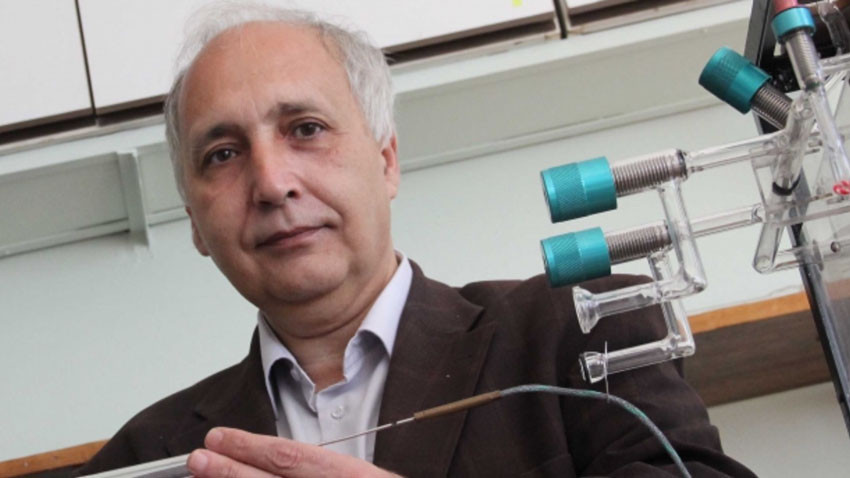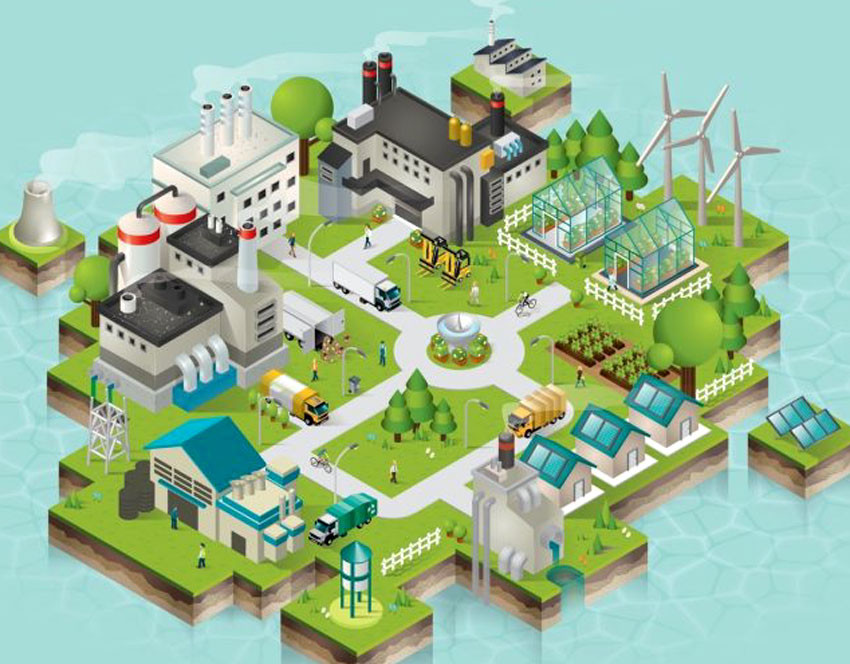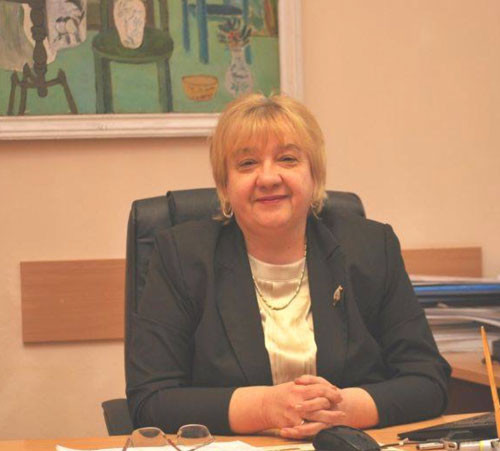Reducing carbon dioxide emissions into the atmosphere can be achieved by using zero-emission fuels. Unfortunately, the use of such fuels that do not emit carbon dioxide cannot be achieved in a short time, says Prof. Konstantin Hajiivanov, Coordinator of the National Program.

Currently, scientists at the Bulgarian Academy of Sciences are working on developing methods for capturing carbon dioxide and partially utilizing it. Even if half of the amount is put into use, it would be a good economic solution, the chemist said. According to him, one of the successful methods of capturing the greenhouse gas is by using membranes to separate it. This way it would be stored so that it did not go into the atmosphere. Other avant-garde solutions, according to Prof. Konstantin Hajiivanov, include the splitting of gas through plasma and the use of some plants such as algae, which, through photosynthesis, absorb carbon dioxide at an accelerated rate.
The storage and conversion of renewable energy is another major section of the National Program.
“The question is how energy from renewable energy sources such as sunlight, wind and others can be preserved,” Prof. Konstantin Hadjiivanov says. “We have been working on batteries of a new type and we have also been developing electric vehicles and hydrogen vehicles. Hybrids, combining both sources of energy, are the most important, because if the battery was low, one could switch to hydrogen to ensure mobility.”

A hybrid trolleybus, powered by electricity and hydrogen, which is considered the energy of the future, would be transporting passengers on the capital's boulevards in three years when the scientists would be ready with their pilot project, Prof. Konstantin Hadjiivanov says. Shipping is also interested in hydrogen as it does not produce carbon emissions. A team from the University of Ruse is currently working on a project for an environmentally friendly river vessel.
 “The program envisages the development of a river vessel, which is to be powered by hydrogen and at the same time would use energy obtained from solar panels,” Prof. Velizara Pencheva of the University of Ruse says. “Together with the municipality of Silistra and our Romanian colleagues, we have already developed the idea of a vessel powered by solar energy, and now we are upgrading it with the use of hydrogen. By resorting to alternative sources of vehicle propulsion instead of internal combustion engines, we would help the Danube River, neighboring towns and villages and preserve nature in the area. We hope to launch a prototype of our vessel in 2021, which could be used for both tourist and short-distance travels.”
“The program envisages the development of a river vessel, which is to be powered by hydrogen and at the same time would use energy obtained from solar panels,” Prof. Velizara Pencheva of the University of Ruse says. “Together with the municipality of Silistra and our Romanian colleagues, we have already developed the idea of a vessel powered by solar energy, and now we are upgrading it with the use of hydrogen. By resorting to alternative sources of vehicle propulsion instead of internal combustion engines, we would help the Danube River, neighboring towns and villages and preserve nature in the area. We hope to launch a prototype of our vessel in 2021, which could be used for both tourist and short-distance travels.”
Innovative methods for using and storing clean energy will find practical application in other interesting projects as well, such as for the autonomous energy supply of a single-family house.
English: Alexander Markov
Photos: private library and eplus.bas.bgThe Bulgarian Embassy hosted the second concert of the 17th season of the Bulgarian Music Society in Washington. On 14 November, guests enjoyed a unique show by two world-class artists, both originally from Bulgaria: Desi Jordanoff, a folk dance master,..
Generation Z students (born 1995–2012) are widely using artificial intelligence in their learning, with teachers reporting that more than 85% complete homework and study with the help of digital assistants. Children tend to see AI as a partner..
This year, Christmas has "arrived" in Sofia as early as November with the aroma of mulled wine, cinnamon and festive magic. Radio Bulgaria recommends that you visit some Christmas spots in the Bulgarian capital city: For those most impatient to..

+359 2 9336 661
